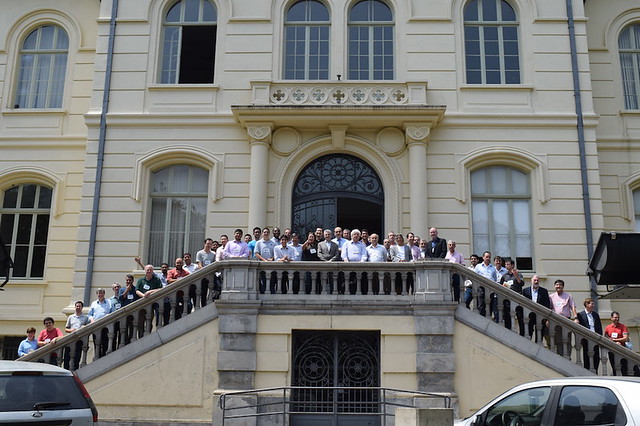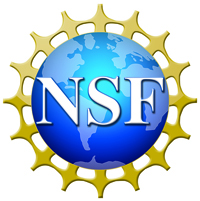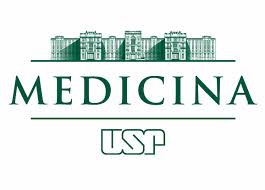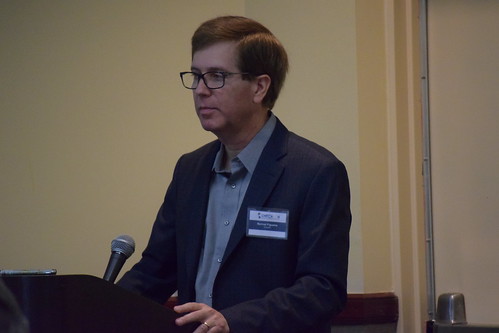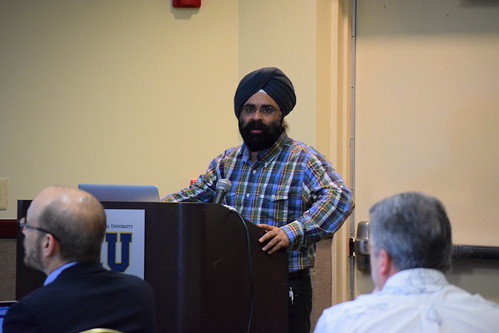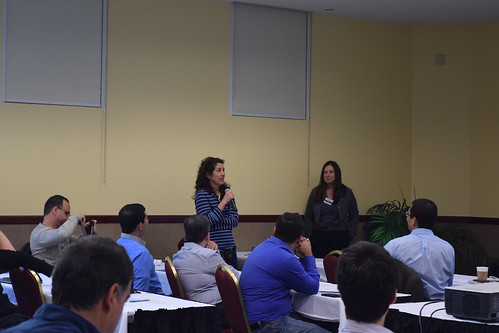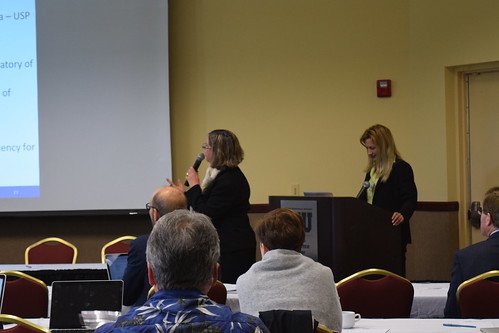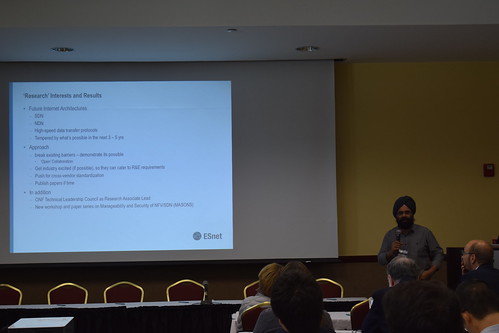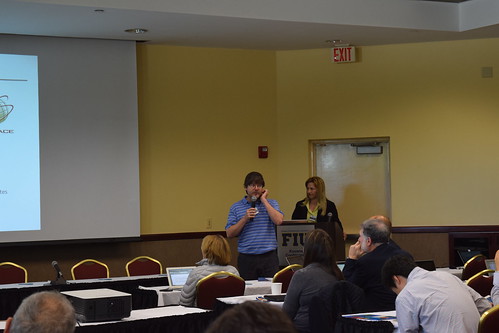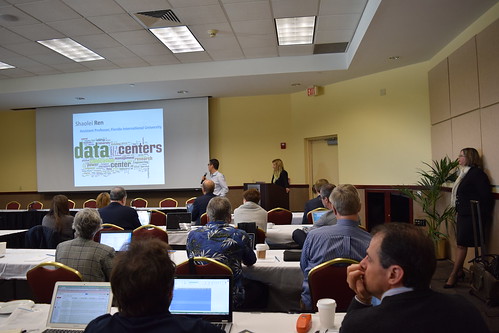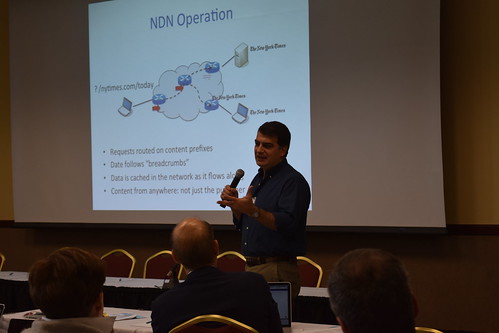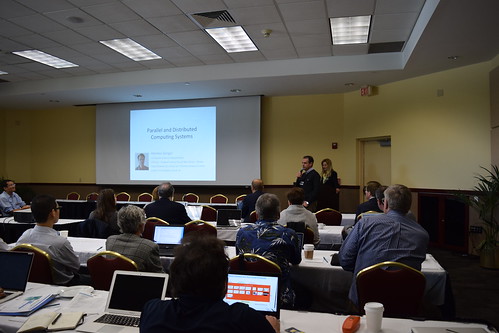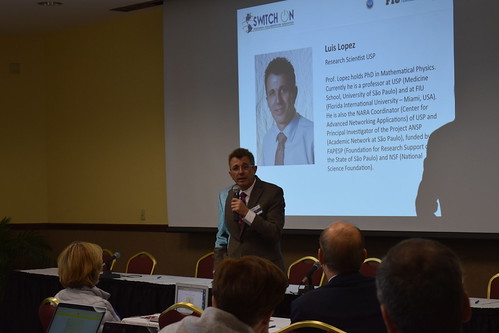Important Dates: October 15-16, 2015
Images provided by University of Sao Paulo, Dr. Glenn Ricart and Dr. Mark Berman.
Click here to download ANSP newsletter about First SwitchOn workshop Miami.
Click here to fill out the survey for the Second SwitchOn Workshop.
Location:
University of Sao Paulo Medical School – FM USP
Anfiteatro Instituto Oscar Freire
Av. Dr. Arnaldo, 455, Cerqueira César, CEP: 01246903, São Paulo – SP, Brazil
http://www.fm.usp.br/site/Home
Registration:
All Attendees must register here.
DAY 0 (Wednesday, 14-October 2015)
Welcome Reception
Date: Wednesday, October 14th, 2015
Time: 8:00pm -10:00pm
Location: Renaissance Marriott Sao Paulo (Itatiaia Meeting room )
Program
Click here to download program and proceedings.
![]()
DAY 1 (Thursday, 15-October 2015)
8:30-8:50 Welcome, Luis Fernandez Lopez (USP) and John Brassil (NSF)
8:50-9:20 Report on First SwitchOn Workshop in Miami: Jason Liu and Julio Ibarra
9:20-10:05 Keynote: Lisandro Zambenedetti Granville, Moderator: Julio Ibarra
Download pdf presentation here.
Title: Reviewing Brazilian International Collaboration Programs on IT: Challenges and Lessons Learned
Abstract: In the last years, the Brazilian government has been financially supporting a number of research projects selected from joint international open calls, especially with Europe. Important areas have been covered in such projects, such as Cloud Computing, HPC, and Future Internet. Joint projects with international partners lead to unique opportunities to Brazilian researchers, although they also pose challenges that are not often found in traditional, national projects. Opportunities and challenges are also faced by funding agencies, that need to assist researchers to achieve the full potential of international collaborations. In this talk, we will review the last international joint calls with Brazil, discussing their benefits, experiences, and lessons learned. We will also observe the faced difficulties and how such difficulties have been addressed, and finally we will provide considerations about future opportunities of international collaborations.
Speaker’s Bio:
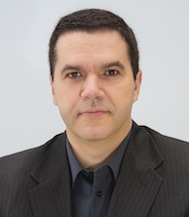 Lisandro Zambenedetti Granville, Ph.D.
Lisandro Zambenedetti Granville, Ph.D.
Federal University of Rio Grande do Sul
granville at inf dot ufrgs dot br
Lisandro Zambenedetti Granville is director of the Center for Research and Development in Digital Technologies for Information and Communications (CTIC/RNP), president of the Brazilian Computer Society (SBC), associate professor on Computer Networks at the Institute of Informatics of the Federal University of Rio Grande do Sul (UFRGS), chair of the Committee on Network Operations and Management (CNOM) of the IEEE Communications Society, co-chair of the Network Management Research Group (ƒNMRG) of the Internet Research Task Force (IRTF), and member of the Brazilian Internet Steering Committee (CGI.br). As Director of CTIC/RNP, Lisandro is responsible for running the processes of advertising, selecting, assisting, and managing research projects developed by Brazilian universities and research centers. As a researcher, Lisandro’s topics of interest include network management, dynamic circuit networks, software-defined networking, and network functions virtualization.
10:05-10:30 Break – Morning Refreshment Break (hall in front of the main conference room)
10:30-12:30 Introduction by each Participant (2 minutes each), Moderator: Heidi Morgan
Abstract:
Download pdf presentation here.
Each participant will have 2 minutes to say the following:
– Description of who they are
– Research interests and main results
– Current and potential USA collaborations
– Themes they think fit best for USA-Brazil research collaboration
Speaker’s Bio:
 Co-PI: Heidi L. Morgan, PhD
Co-PI: Heidi L. Morgan, PhD
Director of CIARA
heidi at fiu dot edu
Heidi L. Morgan, PhD. is the Director of the Center for Internet Augmented Research and Assessment (CIARA) at Florida International University. She is a Co-PI for several NSF funded projects including SwitchOn – Exploring and Strengthening US-Brazil Collaborations in Future Internet Research (switchon.ampath.net), PIRE: Training and Workshops in Data Intensive Computing Using The Open Science Data Cloud (www.opensciencedatacloud.org), Americas Lightpaths: Increasing the Rate of Discovery and Enhancing Education across the Americas (amlight.net) and the AMPATH International Exchange Point in Miami. Heidi enjoys working to advance research and education networking initiatives in the Caribbean, Mexico, Central and South America and collaborating with likeminded professionals in the US and around the world.
12:30-14:00 Lunch (Room: USP Medical School, 5th floor)
14:00-16:00 Technical Session (I), Moderator: Jason Liu (FIU)
1. Expanding US/Brazil FIDC Testbed Federation, Mark Berman (BBN)
Download pdf presentation here.
Title: Expanding US/Brazil FIDC Testbed Federation
Abstract: Future Internet and distributed cloud (FIDC) testbed researchers in Brazil and the US are among the first participants in a developing worldwide trend toward greater federation of research cyberinfrastructure. Federation of FIDC testbeds offers a promising value proposition for both operators and end users, offering scale, geographic diversity, and resource heterogeneity, while maintaining local control over resources, policies, and cost.
Federation of FIDC testbeds occurs at several levels, but the first (and often most challenging) step is the human-to-human and organization-to-organization process of establishing trust and resource sharing agreements and the associated implementation policies. Once this step is addressed, the technical implementation may include some or all of AAA (authentication, authorization, and accounting) federation, control plane federation, and data plane federation. Established or emerging standards exist for each of these aspects of technical federation, at various levels of maturity.
Thanks to strong researcher-to-researcher relationships, there are a number of very compelling examples of federation between Brazilian and US testbeds, supporting a variety of research collaborations. There is great potential in pursuing two promising paths for expanding the power of these federations. One path is to agree upon and implement policies that simplify human-level processes, moving toward routine, automated instantiation of federated infrastructure configurations. A second path is to continue to expand research and infrastructure collaborations to a broader set of participating countries and regions.
Speaker’s Bio:
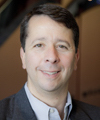 Mark Berman, A.B, S.M.
Mark Berman, A.B, S.M.
GENI Project Director
mberman at bbn dot com
Mark Berman is Vice President for Technology Development at BBN and Project Director for NSF’s GENI project, with overall responsibility for GENI’s technical direction and successful implementation. At BBN, Mark works to bring technical innovations into practical use. Mark’s research interests are in the area of complex distributed systems and their usability. As VP of BBN’s Intelligent Computing business, he exercised management oversight for numerous research and technology transition efforts, across a diverse set of disciplines and advocated for an open source approach to technology transition. Mark holds A.B. and S.M. degrees in computer science from Harvard.
2. Chameleon: A Large-scale, Reconfigurable Experimental Environment for Next Generation Cloud Research, Kate Keahey (U Chicago)
Download pdf presentation here.
Title: Expanding US/Brazil FIDC Testbed Federation
Abstract: While cloud services have become ubiquitous to all major 21st century economic many open questions remain on how to best assimilate and leverage this new technology. In particular, many open research questions concern the relationship between cloud computing and high performance computing, the suitability of cloud computing for data-intensive applications, and its position with respect to emergent trends such as Software Defined Networking. A persistent barrier to further understanding of those issues has been the lack of a large-scale testbed where they can be explored. This is partly because a suitable experimental platform would require large investment in hardware and support for deep reconfigurability to provide the required support for reliable and reproducible research.
With funding from the National Science Foundation (NSF), the Chameleon project provides such platform to the open research community allowing them to explore transformative concepts in deeply programmable cloud services, design, and core technologies. The testbed, deployed at the University of Chicago and the Texas Advanced Computing Center, will ultimately consist of almost 15,000 cores, 5PB of total disk space, and leverage 100 Gbps connection between the sites. While the primary investment in hardware deployed so far consists of primarily of homogenous hardware to support large-scale experiments, future capabilities will support heterogeneous units allowing experimentation with high-memory, large-disk, low-power, GPU, and co-processor units. To support a broad range of experiments, the project provides a configuration system allowing full control of the software stack, from provisioning of bare metal and network interconnects to delivery of fully functioning cloud environments. This talk will describe the goals, the building, and the capabilities of the testbed.
Speaker’s Bio:
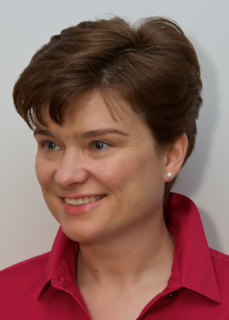 Kate Keahey, Ph.D.
Kate Keahey, Ph.D.
Computer Scientist at Argonne National Laboratory, Computation Institute fellow
University of Chicago
keahey at mcs dot anl dot gov
Kate Keahey is one of the pioneers of infrastructure cloud computing. She created and leads the development of the Nimbus project, recognized as the first open source Infrastructure-as-a-Service implementation, and engages in many application leveraging cloud computing capabilities for science. She also leads the Chameleon project, a distributed experimental platform for cloud computing research. Kate is a Scientist at Argonne National Laboratory and a Senior Fellow at the Computation Institute at the University of Chicago.
3. Chameleon: A Self-Adaptative Multi-Cloud Testbed, Carlos R. Senna and Edmundo R. M. Madeira (UNICAMP)
Download pdf presentation here.
Title:Chameleon: A Self-Adaptative Multi-Cloud Testbed
Abstract:Nowadays the cloud computing technology allows us to integrate local resources (networks, grids and private clouds) to intensive computing centers (data centers), forming a hybrid and heterogeneous environment accessible through the Internet. However, new emerging technologies, notably Internet of Things (IoT), bring with them new requirements to support mobility, geographical distribution, location awareness and low latency, requiring a new platform. To address these new challenges the cloud is migrating to the network edge. This evolution of the cloud demands a new paradigm that extends the cloud computing services to the edge of the network, to meet a new generation of services and applications. In this talk, I will present Chameleon, the LRC (Computer Network Laboratory)/UNICAMP multicloud testbed, designed to meet the IoT requirements. Chamaleon consists of a hardware infrastructure with the capacity to hostmultiple cloud technologies and a software infrastructure to orchestrate the execution of distributed applications, integrate technologies and facilitate cooperation between the various levels of multicloud environments. Several applications that use Chamaleon will be commented, such as image processing applications, scientific workflows, sensor network applications, vehicular applications and Hadoop applications.
Speaker’s Bio:
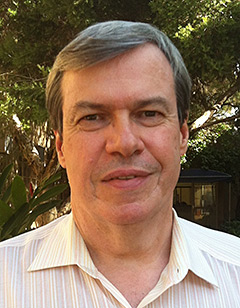 Edmundo R. M. Madeira, Ph.D.
Edmundo R. M. Madeira, Ph.D.
Professor at the University of Campinas
edmundo at ic dot unicamp dot br
Edmundo R. M. Madeira is a Full Professor at the University of Campinas (UNICAMP), Brazil. He received his Ph.D. in Electrical Engineering from UNICAMP in 1991. He has published over 150 papers in national and international conferences and journals. He was the General Chair of the 7th Latin American Network Operation and Management Symposium (LANOMS’11), and he was a Technical Program Co-chair of the IEEE LatinCloud’12. He is a member of the editorial board of Journal of Network and Systems Management (JNSM), Springer. His research interests include network management, future Internet and cloud computing.
4. BAMBU: A Metropolitan Innovation Testbed for Promoting Future Internet Research, Leobino N. Sampaio, Luciano Rebouças, and Marcos Barreto (UFBA), Romildo Martins and Allan E. S. Freitas (IFBA)
Download pdf presentation here.
Title: BAMBU: A Metropolitan Innovation Testbed for Promoting Future Internet Research
Abstract: A broad number of large-scale network testbeds have been proposed in the last couple of years as a mean of better supporting Future Internet research. This paper present Bambu, a metropolitan innovation testbed for promoting experimental researches in the city of Salvador, Bahia.
Speaker’s Bio:
 Leobino N. Sampaio, Ph.D.
Leobino N. Sampaio, Ph.D.
Federal University of Bahia
leobino at ufba dot br
Leobino N. Sampaio is Assistant Professor at Federal University of Bahia (UFBA) since 2010. He holds Bachelors in Computer Science from Salvador University (UNIFACS) in 1996, and Master Science from Salvador University (UNIFACS) in 2002 and PhD in Computer Science by Federal University of Pernambuco (UFPE) in 2011. He has a large experience in computer networks, in particular, network measurements and performance evaluation. Currently, his research interests are software-defined networking, mobile communication, content-centric networks, and energy efficiency in data center networks.
5. From Federated Software Defined Infrastructure to Future Internet, Kuang-Ching Wang (Clemson)
Download pdf presentation here.
Title: From Federated Software Defined Infrastructure to Future Internet
Abstract: Since 2009, Clemson University embarked on a series of NSF projects that led its researchers and IT engineers through an exciting learning curve for software defined networking (SDN) and cloud computing technologies. From academic explorations of NSF GENI, CC-NIE, FutureCloud to production adoption of SDN-based data center fabric, we have worked on SDN and cloud programming and integration at data center, campus, regional, national, and international scope. It is our belief that software defined infrastructures (SDIs) around the world will be increasingly federated and interoperable, allowing applications to be launched from anywhere, with highly customizable communication with other services near and far. As a result, their logical requirements, both locally and globally, will be driving the federated SDI architecture, which will shape the future Internet.
Speaker’s Bio:
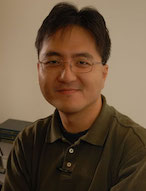 Kuang-Ching Wang, Ph.D.
Kuang-Ching Wang, Ph.D.
Associate Professor, ECE, Networking CTO, CCIT, Clemson University
kwang at clemson dot edu
Dr. K.-C. Wang is an Associate Professor at the Department of Electrical and Computer Engineering at Clemson University as well as the Networking CTO for CCIT, the university’s IT organization. He was on sabbatical at the Stanford Open Networking Lab (ON.Lab) in 2012, and visiting Big Switch Networks, a leading SDN startup, from 2013-2015 working on SDN and Cloud orchestration software development. He received his Ph. D. in Computer Engineering from UW-Madison in 2003. Dr. Wang is the PI for several NSF GENI future Internet projects deploying SDN, WiMAX, and compute racks for nationwide research experimentation. He is also the PI for “Clemson NextNet” – a NSF campus cyber-infrastructure project for deploying university wide SDN and building a SDN support team in the IT organization. He is a member on the US Ignite mentoring team for integrating SDN with broadband applications. At ON.Lab, he was on the team that developed the first demo of SDN-BGP wide area networking support. Prior to GENI, he has developed a range of network testbeds with different wireless technologies including Wi-Fi, WiMAX, and Zigbee for infrastructure, ad hoc, and sensor wireless networks sponsored by NSF, USDOT, SCDOT, BMW, Cisco Systems, and CH2M Hill.
6. Network Virtualization and Testbeds at AmLight SDN, Jeronimo Bezerra (FIU)
Download pdf presentation here.
Title: AmLight Software Defined Network
Abstract: In 2014, OpenFlow was enabled at AmLight network to create a Software-defined Networking infrastructure, focusing on provisioning optimization and network virtualization support. The virtualization feature has been deployed to support experimental testbeds, providing a platform for innovation for researchers in the U.S. and Latin America. Even though AmLight is a production infrastructure, experimentation has been widely supported, and researchers encouraged to use it for prototyping their applications. Since 2014, more than eight testbeds were created in parallel with production applications. This presentation plans to introduce AmLight SDN resources available to support new network testbeds between the U.S. and South America, as well describe future actions to enhance academic collaborations.
Speaker’s Bio:
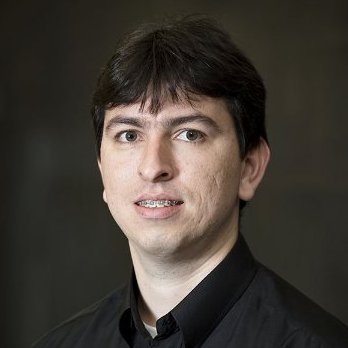
Jeronimo Bezerra
Sr. Network Engineer at FIU-CIARA
jbezerra at fiu dot edu
MSc in Mechatronics and BS in Computer Science by the Federal University of Bahia/Brazil, Jeronimo Bezerra has been involved with academic networks for the last 12 year. Currently, he is the AmLight Senior Network Engineer (www.amlight.net), being responsible for the AmLight Software Defined Network and all its applications, protocols and performance requirements.
16:00-16:30 Break – Afternoon Refreshment Break (hall in front of the main conference room)
16:30-18:30 Technical Session (II), Moderator: Kuang-Ching Wang (Clemson)
1. Looking Beyond the Internet – Next Steps, Chip Elliott (BBN)
Download pdf presentation here.
Title: Looking Beyond the Internet – Next Steps
Abstract: The technical structure of the Internet is now starting to undergo a major transformation into its next generation, which many are calling Software Defined Infrastructure (SDI). This transformation is opening up major new opportunities for research. We will briefly discuss this transformation as well as the next steps being planned from a United States perspective.
Speaker’s Bio:
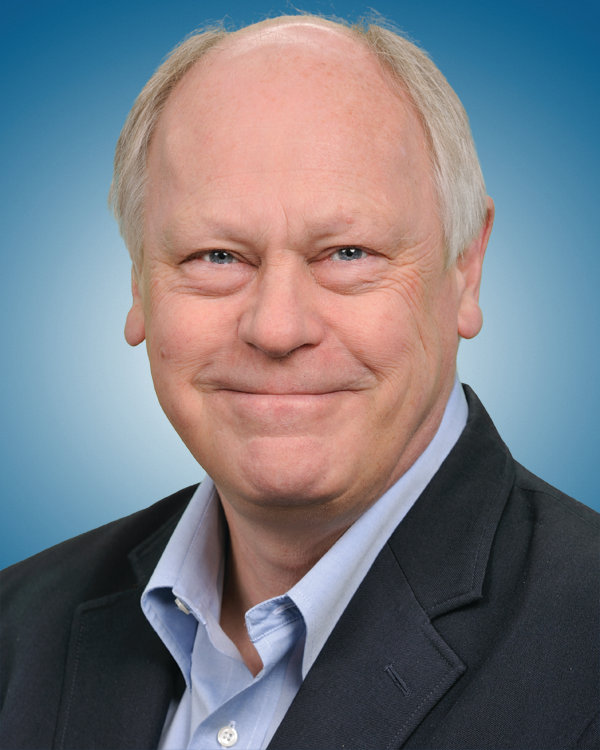 Chip Elliott, Ph.D.
Chip Elliott, Ph.D.
GENI Futures Director
celliott at bbn dot com
Chip Elliott is Principal Investigator for GENI, a nationwide suite of experimental infrastructure being created by the National Science Foundation for at-scale research in future internet architectures, services, and security. He is Chief Scientist at Raytheon BBN Technologies, Adjunct Professor at Dartmouth College, a Fellow of the AAAS, ACM, and IEEE, and an active inventor with 90 patents. Mr. Elliott has served on many national panels and has held visiting faculty positions at Tunghai University in Taiwan and the Indian Institute of Technology, Kanpur.
2. Advanced Infrastructure and Applications for Interoperable and Interconnected Smart Cities, Glenn Ricart (US Ignite)
Download pdf presentation here.
Title: Advanced Infrastructure and Applications for Interoperable and Interconnected Smart Cities
Abstract: The NSF has recently initiated a grant to US Ignite to add a locavore infrastructure in 15 gigabit US cities and to create a self-sustaining set of innovative, interoperable, and interconnected smart city applications made feasible by that infrastructure. The outline of that infrastructure will be presented and an invitation issued to Brasilian cities, universities, and funding agencies, to research, develop, deploy, and interconnect a Brasilian-customized version. Especially valuable will be projects which involve both US and Brasilian researchers working on bleeding-edge applications and/or the infrastructure to support them which would be researched, developed, deployed and tested in both countries. Other potential international partners including Europe and Japan are also considering such joint projects.
Speaker’s Bio:
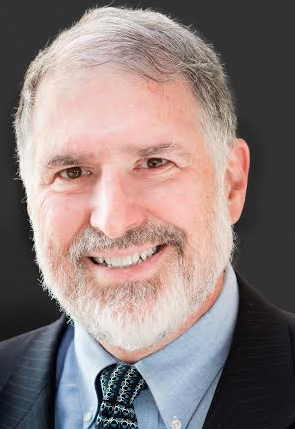 Glenn Ricart , Ph.D.
Glenn Ricart , Ph.D.
Founder and CTO of US Ignite
Glenn dot Ricart at us-ignite dot org
Glenn Ricart is founder and CTO of US Ignite, a nonprofit creating an ecosystem of innovative applications and services in smart gigabit communities enabled by software-driven infrastructure. US Ignite brings together corporations, cities and regions, government, nonprofits, and academic to make and deploy these innovative applications and services. Dr. Ricart is also Adjunct Professor in the School of Computing at the University of Utah. Previously, Glenn was CEO of National LambdaRail, Managing Director of PricewaterhouseCoopers, Executive Vice President and CTO of Novell during its heyday, Program Manager at DARPA, and Assistant Vice Chancellor of Academic Affairs and academic CIO at the University of Maryland. Dr. Ricart was inducted into the Internet Hall of Fame as an Internet Pioneer in 2013. He is also the founder or co-founder of five startups raising a combined total of $190M.
3. Flexible Infrastructure Management for Smart Societies, Carlos Alberto Kamienski (UFABC)
Download pdf presentation here.
Title: Flexible Infrastructure Management for Smart Societies
Abstract: Smart cities require a variety of new services to be available to citizens of large urban spaces, based on data coming from different sources. This will pose high demands for dynamic allocation of existing computing and communication infrastructure that currently are based on datacenters. We advocate that the management of dynamic configuration mechanisms for cloud elasticity, SDN and NFV is a key feature for enabling such new scenarios. Encouraging results with dynamic datacenter reconfiguration will be used for providing services for smart cities, such as dealing with high and varying density of people in particular locations.
Speaker’s Bio:
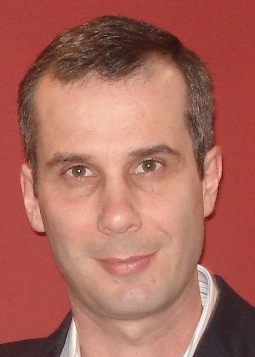 Carlos Kamienski, Ph.D.
Carlos Kamienski, Ph.D.
Federal University of ABC
carlos dot kamienski at ufabc dot edu dot br
Carlos Alberto Kamienski received his Ph.D. in computer science from the Federal University of Pernambuco (Recife PE, Brazil) in 2003. He is an associate professor of computer science at the Federal University of ABC (UFABC) in Santo André SP, Brazil, where currently he holds the position of director of international relations. His current research interests include cloud computing, software-defined networks, future internet, network function virtualization, analysis of online social networks and smart cities.
4. Cybersecurity and Privacy and the Human Factors Behind It, Daniela Oliveira (UFL)
Download pdf presentation here.
Title: Cybersecurity and Privacy and the Human Factors Behind It
Abstract: Computer systems are everywhere. Society is dependent on networked computer systems and software for everything from running the smart grid that powers your house to social networking with your family and friends. The societal dependency has raised new responsibilities for scientists to develop sound methods and practices to protect computer systems from attack, as well as protect the user against privacy threats created by ubiquitous computer systems. The methods and practices must consider both threats from attackers looking to compromise systems, as well as the privacy and human factors considerations new systems bring to users. Cyber security scientists and engineers are also faced with the daunting task of not just securing systems against lone individuals, but also nation states using computer systems to carry out their political and military agendas. In this talk, I will discuss these challenges from the viewpoint of implementing security across layers of abstraction, and designing systems that protect user privacy and that take into account the social, behavioral and economic implications of security.
Speaker’s Bio:
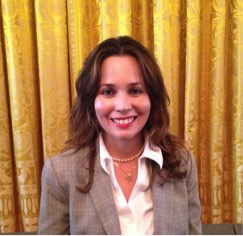 Daniela Oliveira, Ph.D.
Daniela Oliveira, Ph.D.
Associate Professor University of Florida
daniela at ece dot ufl dot edu
Daniela Oliveira is an Associate Professor in the Department of Electrical and Computer Engineering at the University of Florida. She received her B.S. and M.S. degree in Computer Science from the Federal University of Minas Gerais in Brazil. She then earned her Ph.D. in Computer Science from the University of California at Davis. Her main research interest is interdisciplinary computer security, where she employs successful ideas from other fields to make computer systems more secure. Her current research interests include employing warfare deception strategies to protect OS kernels. She is also interested in understanding the nature of software vulnerabilities and social engineering attacks, especially how these attacks can be prevented from a Psychological perspective. She received an NSF CAREER Award in 2012 for her innovative research into operating systems’ defense against attacks using virtual machines and the 2014 NSF Presidential Early Career Award for Scientists and Engineers (PECASE).
5. NovaGenesis Project: Overview, Current Activities and Research Opportunities, Antonio Marcos Alberti (INATEL)
Download pdf presentation here.
Title: NovaGenesis Project: Overview, Current Activities and Research Opportunities
Abstract: This talk provides an overview of the NovaGenesis convergent information project, summarizing its current research and development activities. It also presents a list of research opportunities – open problems – that could be addressed by our team together with other institutions in joint research initiatives.
Speaker’s Bio:
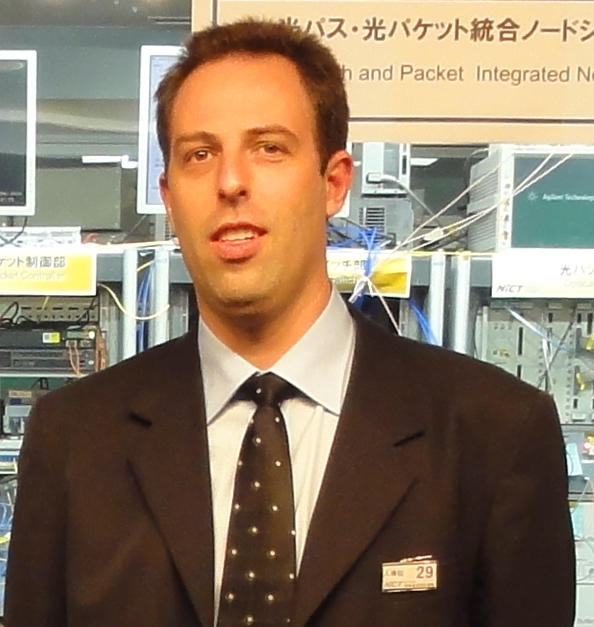 Antônio Marcos Alberti, Ph.D.
Antônio Marcos Alberti, Ph.D.
Santa Maria Federal University
alberti at inatel dot br
Antônio Marcos Alberti received the degree in Electrical Engineering from Santa Maria Federal University (UFSM), Santa Maria, RS, Brazil, in 1986, and the M.Sc. and Ph.D. degrees in Electrical Engineering from Campinas State University (Unicamp), Campinas, SP, Brazil, in 1998 and 2003, respectively. In February 2004, he joined National Institute of Telecommunications (INATEL), Brazil, as an Adjunct Professor. He was a visiting researcher at Future Internet Department at Electronics and Telecommunications Research Institute (ETRI), South Korea, from March 2012 up to February 2013. He is the head of the INATEL’s ICT Lab and chief architect of NovaGenesis convergent information architecture project. His current interests include Future Internet Design, Internet of Things, Cloud Networking, Service-Defined Architectures, 5G, Cognitive Radio and Cognitive Radio Networks.
6. Brocade SDN/OpenFlow Update, Norival Figueira (Brocade)
Download pdf presentation here.
Title: Brocade SDN/OpenFlow Update
Abstract: This presentation covers Brocade’s latest SDN/OpenFlow feature developments, including the Brocade SDN Controller, the Brocade Flow Optimizer application, and new router OpenFlow features. The presentation also briefly discusses related research work by the author on SDN/NFV Policy Framework and Architecture.
Speaker’s Bio:
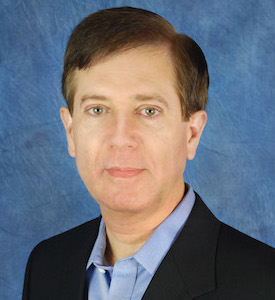 Norival Figueira, Ph.D.
Norival Figueira, Ph.D.
Office of the CTO, Brocade
nfigueir at brocade dot com
Norival Figueira received Ph.D. and M.S. degrees in Computer Science from the University of California, San Diego (UCSD). Dr. Figueira is currently a distinguished member of the Office of the CTO at Brocade, where he leads projects in the areas of SDN and network policies and security. Previously, Dr. Figueira was on Brocade’s product management team, where he led the development of SDN/OpenFlow and other advanced features on Brocade router products. Prior to Brocade, Dr. Figueira served in senior leadership positions with Foundry Networks, Hammerhead Systems, Nortel Networks, and Bay Networks. Dr. Figueira is accredited with the issuance of 18 US patents in networking technology.
20:00 Group Dinner (Terraço Itália, Av. Ipiranga, 344 – República, São Paulo – SP, 01046-010, Brazil | MENU)
Transportation from Renaissance Marriott Sao Paulo to the restaurant will be provided. At 7:30pm a bus will be in front of the hotel.
DAY 2 (Friday, 16-October 2015)
Room: Anfiteatro Instituto Oscar Freire
8:30-9:15 Keynote: Christos Papadopolous, Moderator: Jason Liu
Download pdf presentation here.
Title: Named Data Networking: An Internet Architecture for the Future
Abstract: The current Internet names the hosts, leaving it to the application to locate the host with the desired data. However, with the emergence of technologies such as CDNs and the cloud, and trends such as mobility and IoT, the need to associate data with an IP address has become a hindrance. This misalignment requires enormous corrective effort at the expense of application complexity and robust security.
Named Data Networking (NDN) transforms the current network of hosts into a network of data objects. In the process, application complexity is substantially reduced and data is easily secured. A named data network is an efficient content distributor that can natively support communication models such as multicast and anycast, routing models such as multipath and data operations such as publishing, discovery and caching. In general, NDN offers a network service model that aligns better with user needs, building a stronger foundation for current and future applications.
This talk will present NDN and some illustrative applications.
Speaker’s Bio:
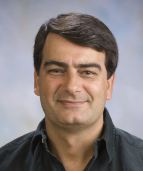
Christos Papadopoulos, Ph.D.
Associate Professor at Colorado State University
christos at cs dot colostate dot edu
Christos Papadopoulos is currently a professor at Colorado State University. He received his Ph.D. in Computer Science in 1999 from Washington University in St. Louis. In 2002 he received a NSF CAREER award to explore router services as a component of the Internet architecture. He currently works on future Internet architectures, network security and measurements. Active projects include Named Data Networking (NDN), Supporting Climate Applications over NDN, Netbrane, PREDICT, Retro-Future, WIT-II and Making Internet Routing Data Accessible to All. He is a senior IEEE member and has served on numerous ACM and IEEE conference program committees.
9:15-10:15 Technical Session (III) , Moderator: Edmundo Madeira (UNICAMP)
1. Future Internet Deployment: The Path Ahead, Flavio de Oliveira Silva (UFU)
Download pdf presentation here.
Title: Future Internet Deployment: The Path Ahead
Abstract: One of the Information and Communication Technologies (ICT) research goals is to create a fully mobile and connected society where the right information is ready to be used by humans, machines and systems. To achieve this goal, communication technologies should be capable of providing the requirements of users and applications with a smarter and efficient use of resources.
Future Internet research embraces several efforts towards this direction. However, there are research challenges in order to deploy new network architectures and enable new types of applications based on Future Internet Architectures (FIAs). A fully programmable infrastructure and the interconnection of the FI infrastructures that are already available are two of these challenges. This talk addresses these points and present our vision and ongoing research in order collaborate with deployment of the Future Internet.
Speaker’s Bio:
2. Abstract Topology and Cost Maps for Software-Defined Inter-Domain Circuits, Malathi Veeraraghavan (UVA) and Christian Esteve Rothenberg (UNICAMP)
Download pdf presentation here.
Title: Abstract Topology and Cost Maps for Software-Defined Inter-Domain Circuits
Abstract: BGP software and policy configuration are widely acknowledged to be highly complex. A research question of interest in whether simplifications are possible to inter-domain routing protocols for best-effort IP service in the new SDN paradigm.
There is an effort called Application Layer Traffic Optimization (ALTO) underway in the IETF to define a protocol that enables applications to request and receive information such as network topology, path costs, link availability, routing policies, and end-host properties. Providers can offer network information in abstracted form since the ALTO protocol offers topology hiding. The ALTO protocol was proposed for IP-routed best-effort services. We propose to explore whether the ALTO protocol can be extended to support advance-reservation dynamic L2-path and L1-circuit services.
Speaker’s Bio:
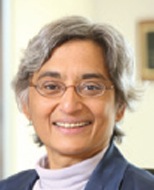 Malathi Veeraraghavan, Ph.D.
Malathi Veeraraghavan, Ph.D.
Professor
mv5g at virginia dot edu
Malathi Veeraraghavan is a Professor in the Charles L. Brown Department of Electrical &
Computer Engineering at the University of Virginia (UVa). Dr. Veeraraghavan received her BTech degree from Indian Institute of Technology (Madras) in 1984, and MS and PhD degrees from Duke University in 1985 and 1988, respectively. After a ten-year career at Bell Laboratories, she served on the faculty at Polytechnic University, Brooklyn, New York from
1999-2002, where she won the Jacobs award for excellence in education in 2002. She served as Director of the Computer Engineering Program at UVa from 2003-2006. Her current research work on optical and IP networks is supported by NSF and DOE. She holds twenty-nine patents, has over 100 publications, and has received five Best-paper awards. She is currently serving as TPC Co-Chair of IEEE BlackSeaCom 2016. She served as the Technical Program Committee Chair for IEEE ICC 2002, and Associate Editor for the IEEE/ACM Transactions on Networking.
3. Exploring research collaborations between University of Puerto Rico and Brazil, José Ortiz-Ubarri (University of Puerto Rico)
Download pdf presentation here.
Title: Exploring research collaborations between University of Puerto Rico and Brazil
Abstract: For the last few years my research group has dedicated most of the time in educational projects to improve CS curriculum and the way computer science is taught at the University of Puerto Rico, and cyber infrastructure to support big data transfers. However our main research interests are computer and network security, and the application of high performance technologies to solve computationally intensive scientific problems.
Speaker’s Bio:
 José R. Ortiz-Ubarri, Ph.D.
José R. Ortiz-Ubarri, Ph.D.
Associate Professor
jose.ortiz23 at upr dot edu
José Ortiz-Ubarri is an Associate Professor at the University of Puerto Rico, Rio Piedras, USA. He received a B.S. degree in Computer Science from the University of Puerto Rico (UPR), Rio Piedras in 2003, and a PhD degree in Computer Science and Engineering from the University of Puerto Rico, Mayagüez in 2010. His research interests include computer and networks security, high performance computing, and computer science education. He is the director of the NSF supported project Perimeter Network to Expedite the Transmission of Science (PR-NETS) at the University of Puerto Rico. José was a systems and network administrator for seven years at the High Performance Computing facility of the UPR. He is a member of the technical committee of the International Conference on Malicious and Unwanted Software (2013-2015).
10:15-10:45 Break – Morning Refreshment Break in the hall in front of the main conference room
10:45-12:15 Breakout discussions, Moderator: Julio Ibarra
Download pdf list of the breakout sessions here.
- A brief summary of the questions for the breakout groups (10 minutes)
- Breakout discussions (50 minutes)
Speaker’s Bio:
 Co-PI: Julio E. Ibarra, PhD
Co-PI: Julio E. Ibarra, PhD
Assistant VP of CIARA
julio at fiu dot edu
As the Assistant Vice President for Technology Augmented Research at FIU, Dr. Julio Ibarra is responsible for furthering the mission of the Center for Internet Augmented Research and Assessment (CIARA) – to contribute to the pace and the quality of research at FIU through the application of advanced Cyberinfrastructure. He is responsible for strategic planning and development of advanced research networking services, including the development and management of the AMPATH International Exchange Point for Research and Education networks, in Miami, Florida. He holds B.S. and M.S. in Computer Science from FIU, and Ph.D. in Telematics and Information Technology from Twente University.
12:15-13:45 Lunch (Room: USP Medical School, 5th floor)
13:45-14:15 Breakout Group Reports, Moderator: Jason Liu
Reports from the breakouts:
Breakout – Cyberinfrastructure [Download pdf presentation or access the google notes]
Breakout – Clouds and Data Center Networking [Download pdf presentation or access the google notes]
Breakout – Future Networks Design and Applications [Access the google notes]
Speaker’s Bio:
 PI: Jason Liu, PhD
PI: Jason Liu, PhD
SCIS FIU
liux at cis dot fiu dot edu
Jason Liu is an Associate Professor at Florida International University in Miami, Florida, USA. He received a B.A. degree in Computer Science from Beijing University of Technology in China in 1993, an M.S. degree in Computer Science from College of William and Mary in US in 2000, and a PhD degree in Computer Science from Dartmouth College in US in 2003. His research interests include parallel discrete-event simulation, high-performance modeling and simulation of communication networks and computer systems. Dr. Liu is currently a steering committee member for the ACM SIGSIM-PADS conference and an associate editor for ACM TOMACS and SIMULATIONS journals. He was a general chair for PADS’12, MASCOTS’10, and SIMUTools’11, and a program chair for SIMUTools’10 and PADS’08. He also served on the technical committees for many conferences. Dr. Liu is an NSF CAREER Awardee in 2006 and an ACM Distinguished Scientist in 2014.
14:15-15:35 Technical Session (V) , Moderator: Edmundo Madeira (UNICAMP)
1. Some Research Problems in Future Networking, Deep Medhi (UMKC)
Download pdf presentation here.
Title: Some Research Problems in Future Networking
Abstract: In this talk, I’ll touch briefly on a number of issues. Here, I highlight two: Federated networking in the future presents a number of challenges. In a new collaborative project between Brazil, US, and Belgium, we are investigating a wide-area federated network environment where applications require deterministic network services (such as high quality video conferencing services). We are exploring research as well as technical challenges in establishing federation and coordination between three different sites located in three different continents. In particular, we are exploring how software-defined networking can be used in this federated environment to give service guarantees.
Virtual machine migration is an important requirement in a data center networking to allow resource flexibility. We want to understand how migration works with the increase the speed of underlying networks in a data center. Our initiation assessment is that scheduling algorithms needs to be network-speed aware since the network speed reduces the time taken to migration VMs. In this collaborative work, we are considering new scheduling algorithms that are network- aware to show how performance can be improved. We are further continuing this work to consider the topological structure of the data center networks in addition to network speed.
Speaker’s Bio:
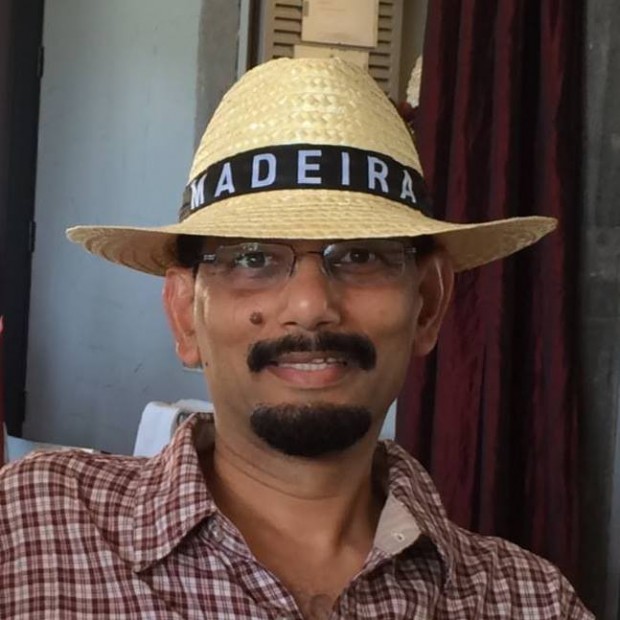 Deep Medhi, Ph.D.
Deep Medhi, Ph.D.
University of Missouri-Kansas City
DMedhi at umkc dot edu
Deep Medhi is Curators’ Professor in the Department of Computer Science & Electrical Engineering at the University of Missouri-Kansas City, USA, and honorary professor in the Department of Computer Science & Engineering at the Indian Institute of Technology-Guwahati, India. He obtained B.Sc. in Mathematics from Cotton College, Gauhati University, India, M.Sc. in Mathematics from the University of Delhi, India, and his M.S. and Ph.D. in Computer Sciences from the University of Wisconsin-Madison, USA. Prior to joining UMKC in 1989, he was a member of the technical staff at AT&T Bell Laboratories. He is the Editor-in-Chief of Springer’s Journal of Network and Systems Management, and is on the editorial board of IEEE/ACM Transactions on Networking, IEEE Transactions on Network and Service Management, and IEEE Communications Surveys & Tutorials. His research has been funded by NSF, DARPA, and industries. He is co-author of the books, Routing, Flow, and Capacity Design in Communication and Computer Networks (2004) and Network Routing: Algorithms, Protocols, and Architectures (2007), both published by Morgan Kaufmann Publishers/Elsevier Science.
2. Towards an Emulator for Software Defined Wireless Networks, Christian Esteve Rothenberg (UNICAMP)
Download pdf presentation here.
Title: Towards an Emulator for Software Defined Wireless Networks
Abstract: In this talk, we will present Mininet-WiFi as a tool to emulate wireless OpenFlow/SDN scenarios allowing high-fidelity experiments that replicate real networking environments. Mininet-WiFi augments the well-known Mininet emulator with virtual wireless stations and access points while keeping the original SDN capabilities and the lightweight virtualization software architecture. We will present a demo use case in a mobile video streaming scenario to showcase the ability of Mininet-WiFi to emulate the wireless channel in terms of bandwidth, packet loss, and delay variations as a function of the distance between the communicating parties.
Speaker’s Bio:
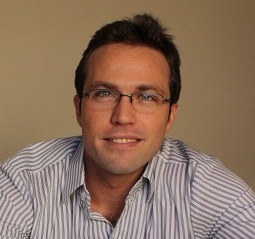 Christian Esteve Rothenberg, Ph.D.
Christian Esteve Rothenberg, Ph.D.
Engineering at University of Campinas
chesteve at dca dot fee dot unicamp dot br
Christian Esteve Rothenberg is an Assistant Professor in the Faculty of Electrical and Computer Engineering at University of Campinas (UNICAMP), where he received his Ph.D. in 2010 and currently leads the INTRIG (Information & Networking Technologies Research & Innovation Group). From 2010 to 2013, he worked as Senior Research Scientist in the areas of IP systems and networking at CPqD Research and Development Center in Telecommunications (Campinas, Brazil), where he was technical lead of R&D acitivities in the field of OpenFlow/SDN such as the RouteFlow project, the OpenFlow 1.3 Ericsson/CPqD softswitch, or the ONF Driver competition. Christian holds the Telecommunication Engineering degree from Universidad Politecnica de Madrid (ETSIT – UPM), Spain, and the M.Sc. (Dipl. Ing.) degree in Electrical Engineering and Information Technology from the Darmstadt University of Technology (TUD), Germany, 2006. Christian holds two international patents and has over 50 publications including scientific journals and top-tier networking conferences such as SIGCOMM and INFOCOM. Since April 2013, Christian is an ONF Research Associate.
3. Scalable Emulation of SDN Applications with Simulation Symbiosis, Cesar Marcondes (UFSCAR) and Jason Liu (FIU)
Download pdf presentation here.
Title: Scalable Emulation of SDN Applications with Simulation Symbiosis
Abstract: Mininet is a popular container-based emulation environment built on Linux for testing OpenFlow applications. Using Mininet, one can compose an experimental network using a set of virtual hosts and virtual switches with flexibility. However, it is well understood that Mininet can only provide a limited capacity, both for CPU and network I/O, due to its underlying physical constraints. We propose a method for combining simulation and emulation to improve the scalability of network experiments. This is achieved first by applying the symbiotic approach to effectively integrate emulation and simulation for hybrid experimentation. For example, one can use Mininet to directly run OpenFlow applications on the virtual machines and software switches, with network connectivity represented by detailed simulation at scale. We also propose a method for using the symbiotic approach to coordinate separate Mininet instances, each representing a different set of the overlapping network flows. By effectively distributing network emulation among separate machines, one can significantly improve the scalability of the network experiments.
Speaker’s Bio:
 PI: Jason Liu, PhD
PI: Jason Liu, PhD
SCIS FIU
liux at cis dot fiu dot edu
Jason Liu is an Associate Professor at Florida International University in Miami, Florida, USA. He received a B.A. degree in Computer Science from Beijing University of Technology in China in 1993, an M.S. degree in Computer Science from College of William and Mary in US in 2000, and a PhD degree in Computer Science from Dartmouth College in US in 2003. His research interests include parallel discrete-event simulation, high-performance modeling and simulation of communication networks and computer systems. Dr. Liu is currently a steering committee member for the ACM SIGSIM-PADS conference and an associate editor for ACM TOMACS and SIMULATIONS journals. He was a general chair for PADS’12, MASCOTS’10, and SIMUTools’11, and a program chair for SIMUTools’10 and PADS’08. He also served on the technical committees for many conferences. Dr. Liu is an NSF CAREER Awardee in 2006 and an ACM Distinguished Scientist in 2014.
4. The Capacity Crunch: Avoidance, Adaptation and Reform, Helio Waldman (UNICAMP)
Download pdf presentation here.
Title: The Capacity Crunch: Avoidance, Adaptation and Reform
Abstract: Our research addresses the need to provide more capacity to accommodate the ever increasing demand for bandwidth generated by Internet traffic. At the current stage, we investigate the ability of elastic networking to provide a response to this need. The next stage will be the deployment of a new infrastructure based on a new generation of optical fibers that support space division multiplexing (SDM). Networking solutions for SDM are under investigation, as well as business and regulatory issues related with such emerging infrastructures.
Speaker’s Bio:
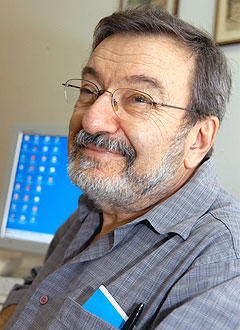 Helio Waldman, Ph.D.
Helio Waldman, Ph.D.
Universidade Estadual de Campinas
waldman at decom dot fee dot unicamp dot br
Helio Waldman is a Collaborating Professor at Universidade Estadual de Campinas (UNICAMP), where he retired in 2006 as a Full Professor (Professor Titular). Between 1986 and 1990, he served as the first Research Provost of UNICAMP, after a 4-year term as the Director of its old Campinas Engineering School (FEC), which originated its current Schools (Faculdades) of Computer and Electrical Engineering (FEEC), Mechanical Engineering and Chemical Engineering. In 2006, he joined the staff of the newborn Universidade Federal do ABC (UFABC), where he reached compulsory retirement in 2014, at the age of 70, after serving a 4-year term as President (Reitor). He received an Engineer degree from Instituto Tecnológico de Aeronáutica (ITA) in 1966, and M.Sc. and Ph.D. degrees from Stanford University in Stanford, California, USA, in 1968 and 1971 respectively. His research interests include modelling of the routing and spectrum assignment (RSA) in emerging elastic optical networks (EON’s), survivability of optical networks, modelling of optical buffers, and application of Game Theory to the modelling of competitive and regulatory strategies in the Internet and other public utility environments.
5. RNP national network infrastructure and support for Future Internet research, Michael Stanton & Alex Moura, (RNP)
Download pdf presentation here.
Title: RNP national network infrastructure and support for Future Internet research
Abstract: We will describe the network infrastructure used to provide services for RNP’s growing user base throughout Brazil. These services are based on a national backbone network linking points of presence in every state, with international connectivity to the rest of Latin America, to the United States and to Europe. This structure provides network access to over 1200 research and higher education sites, providing them with quality connectivity to both academic and commercial sites both in Brasil and throughout the world. RNP also provides specific support for using the network as a laboratory for both present and future Internet experimentation, and this will also be presented.
Speaker’s Bio:
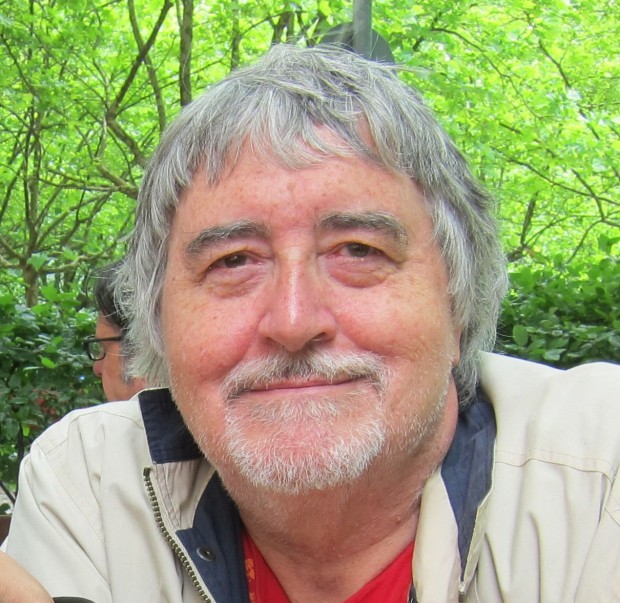 Michael Stanton, Ph.D.
Michael Stanton, Ph.D.
National Education and Research Network (RNP)
michael at rnp dot br
Michael Stanton is Director of Research and Development at RNP, the Brazilian national research and education network. After a PhD in mathematics at Cambridge University in 1971, he has taught at several universities in Brazil, since 1994 as professor of computer networking at the Universidade Federal Fluminense (UFF) in Niterói, Rio de Janeiro state, until his retirement in 2014. Between 1986 and 1993, he helped to kick-start research and education networking in Brazil, including the setting-up and running of both a regional network in Rio de Janeiro state (Rede-Rio) and RNP. He returned to RNP in 2001, with responsibility for R&D and RNP involvement in new networking and large-scale collaboration projects. Since 2012, Michael’s new international activities have included representing RNP on the Global CEO Forum’s Global Network Architecture (GNA) group, engaged in the design of the architecture of the future academic Internet, and joining the Council of the Research Data Alliance in 2014.
6. Experiences supporting data intensive science flows on campus using a Science DMZ., Julio Ibarra (FIU)
Download pdf presentation here.
Title: Experiences supporting data intensive science flows on campus using a Science DMZ
Abstract: The network of a campus or a research enterprise supports multiple business operations: Network traffic associated with administration, The network must be operated with security that protects the financial and personnel data of the organization. At the same time, these networks also support scientific research processes. Researchers depend on the network infrastructure to share, store, and analyze research data from many different external sources.
Campus networks are normally not engineered to support the data movement requirements of data intensive science. Data intensive science applications experience poor performance on general purpose networks. Campuses serve multiple communities of interest. As a result, they are faced with the following challenge: How can campus networks be adapted to optimize flows from science applications without impacting the operation of their production networks?
This talk explores the concept of the Science DMZ as a methodology to reengineer the campus network to support the needs of multiple communities of interest, in particular, the science research community conducting data intensive science, alongside production operation. The implementation of a Science DMZ at FIU’s campus is described. It is a component of a project called FlowSurge: a coordinated and coherent approach to bridging among different cyberinfrastructures by building a Science DMZ at FIU that can be tailored to support the needs of high-performance science applications and data-intensive flows.
Researchers, from their laboratory, will be able to (1) generate science flows to shared CI or CI- connected resources on the campus; at other campuses; or at regional, national or international sites. (2) Orchestrate and participate in “at-scale” experiments by using FlowSurge to tailor the end-to-end path for optimized high-performance science applications and data-intensive flows. FlowSurge will enable IT and network staff at FIU to partition the campus network infrastructure to support Science flows without causing impact to general-purpose production flows on the campus.
Speaker’s Bio:
 Co-PI: Julio E. Ibarra, PhD
Co-PI: Julio E. Ibarra, PhD
Assistant VP of CIARA
julio at fiu dot edu
As the Assistant Vice President for Technology Augmented Research at FIU, Dr. Julio Ibarra is responsible for furthering the mission of the Center for Internet Augmented Research and Assessment (CIARA) – to contribute to the pace and the quality of research at FIU through the application of advanced Cyberinfrastructure. He is responsible for strategic planning and development of advanced research networking services, including the development and management of the AMPATH International Exchange Point for Research and Education networks, in Miami, Florida. He holds B.S. and M.S. in Computer Science from FIU, and Ph.D. in Telematics and Information Technology from Twente University.
15:35-16:05 Break – Afternoon Refreshment Break in the hall in front of the main conference room
16:05-16:45 Technical Session (V), Moderator: Kate Keahey (University of Chicago)
1. US West-coast Future Internet Infrastructure; Pacific Research Platform, Wave SDX & PEERING, John Silvester (USC)
Download pdf presentation here.
Title: US West-coast Future Internet Infrastructure; Pacific Research Platform, Wave SDX & PEERING
Abstract: This year marks important developments in International Research and Education Network Infrastructure for Future Internet and High-Performance Data-Driven Science on the United States West Coast. Pacific Wave (which operates the West Coast International R&E Exchange points) has recently been awarded funding from the US National Science Foundation to upgrade its capabilities and deploy SDX functionality across its facilities in Seattle, Los Angeles, and Sunnyvale (San Francisco Bay Area) and to add access points in several other locations. This is an integral component of the international effort to interconnect research and education networks using Software Defined Networking (SDN). In addition, NSF has funded a $5 million, five-year award to UC San Diego and UC Berkeley and their collaborators to establish a Pacific Research Platform (PRP), a science-driven high-capacity data-centric “freeway system” extending the notion of a DMZ to a large regional scale. This project plans to utilize the Pacific Wave infrastructure to expand the boundaries of campus DMZ’s across a wide geographic area and eventually to international partners. The PRP will give participating universities and other research institutions the ability to move data 1,000 times faster compared to speeds on today’s inter-campus shared Internet and to establish (software defined and managed) virtual networks to support multiple science domains communities across the network. In this talk, we will discuss these developments and the associated measurement infrastructure that is being deployed to monitor network performance and troubleshoot bottlenecks. We will also describe some of the international projects that utilize the infrastructure.
Speaker’s Bio:
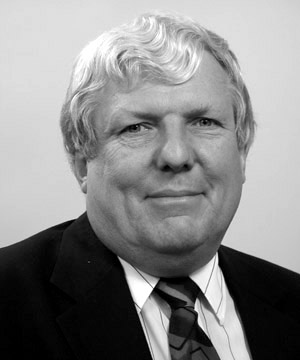 John Silvester, Ph.D.
John Silvester, Ph.D.
University of Southern California
jsilvest at usc dot edu
John Silvester has been with the University of Southern California since 1979 and is currently a Professor of Electrical Engineering. He was Director of the Computer Engineering Division from 1984-1990, Vice-Provost of Academic Computing from 1994-1997, and Vice-Provost of Scholarly Technology from 1997-2006. He received an MA in Mathematics and Operations Research from Cambridge University, MS in Statistics and Computer Science from West Virginia University and Ph.D. in Computer Science from UCLA. His academic interests are in high speed, optical, and wireless networking. He has supervised more than 25 Ph.D. students and published over 150 technical papers. For the last 10 years, he has been actively involved in planning, management and implementation of advanced networking for the research and education community at the State, National, and International level. He was a member of the Board of Directors of CENIC (Consortium for Educational Networks in California), was Vice-Chair from its founding in 1997 to 1999 and Chair from 1999 to 2006. From 2005-2010 he was Principal Investigator of the TransLight/PacificWave project (part of the International Research Networks Connections Program of the US National Science Foundation), that operates the research and education exchange points on the US West Coast and, in partnership with the Australian Academic and Research Network, supports advanced connectivity through Hawaii to Australia. He continues as a consultant for CENIC on international projects with a particular focus on the Pacific Rim and Latin American partners that utilize Pacific Wave (the main academic exchange on the US West Coast), which recently received funding from the NSF to upgrade its facilities to 100G and to deploy a parallel SDX capability. He is co-PI on the NSF Network Infrastructure project TEN-II (Trojan Network II) which is experimenting with SDN capabilities and implementing a “DMZ” to support high performance networking at USC. Participants in TEN-II are part of the Pacific Research Platform based at UCSD (recently funded by the NSF to expand DMZ functionality across multiple campuses to support multiple disciplinary science domains).
2. The Policy Space for Software Defined eXchanges, Joaquin Chung Miranda, Joaquin Chung, Russell Clark, Henry Owen (GaTech)
Download pdf presentation here.
Title: The Policy Space for Software Defined eXchanges
Abstract: An Exchange Point is a common place where different organizations collaborate and share computing, storage and networking resources. Recently, Software Defined Networking technologies are being included into Exchange Points to optimize resource sharing and allocation. In this talk, we explore the policy space for a Software Defined eXchange, focusing on the applications that these policies support and the options that we have to express them.
Speaker’s Bio:
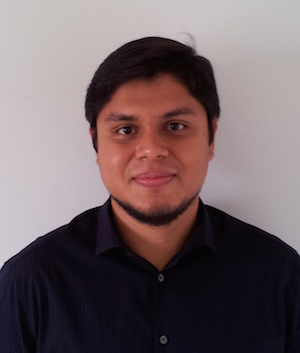 Joaquin Chung Miranda
Joaquin Chung Miranda
PhD Student at Georgia Institute of Technology
joaquin dot chung at gatech dot edu
Joaquin Chung received both his B.S. in Electrics and Communications Engineering (2007) and his M.Sc. in Communication Systems Engineering with Emphasis in Data Networks (2013) from University of Panama, Panama. He is a Fulbright scholar and currently pursuing his Ph.D. in Electrical and Computer Engineering under the supervision of Dr. Henry Owen and Dr. Raheem Beyah at Georgia Institute of Technology, GA. His research interests include Software Defined Networking and Network Security.
16:45 Closing Remarks
![]()
13:30 Fórum de Implementadores de SDN das Redes Acadêmicas Brasileiras (in parallel by invitations only), Moderator: Jeronimo Bezerra
Engineering workshop – discussion about the Brazilian Academic Networks and the implementation of Software Defined Network (SDN) technologies. The meeting is by invitations only and on portuguese.
About Jeronimo Bezerra:

Jeronimo Bezerra
Sr. Network Engineer at FIU-CIARA
jbezerra at fiu dot edu
MSc in Mechatronics and BS in Computer Science by the Federal University of Bahia/Brazil, Jeronimo Bezerra has been involved with academic networks for the last 12 year. Currently, he is the AmLight Senior Network Engineer (www.amlight.net), being responsible for the AmLight Software Defined Network and all its applications, protocols and performance requirements.
![]()
Position paper/ Poster submission
Prepare position paper and/or poster and email them to switchon@mailman.ampath.net. Deadline for abstracts is September 30, 2015. Finished papers and/or posters are due by October 5, 2015
Send short bio and picture for the SwitchOn website to vchergar@fiu.edu by October 2, 2015 (sample: http://switchon.ampath.net/?page_id=20)
Prepare 2-slides PICO Presentation and email them to vchergar@fiu.edu by October 2, 2015 (sample: http://ciara.fiu.edu/pico_switchon2015.pdf)
Transportation
From the GRU Airport to the Renaissance Marriott Sao Paulo hotel
For the arriving participants from US a driver will be holding a sign containing your name at the customs exit.
For the departure from Brazil to US a driver will wait for your group at the transportation desk at Renaissance Marriott. Please consider at least 3 hours for travel distance, check-in and emigration process at the GRU airport.
Transportation from Renaissance Sao Paulo Hotel to the University of Sao Paulo Medical School for the 2 days of the workshop.
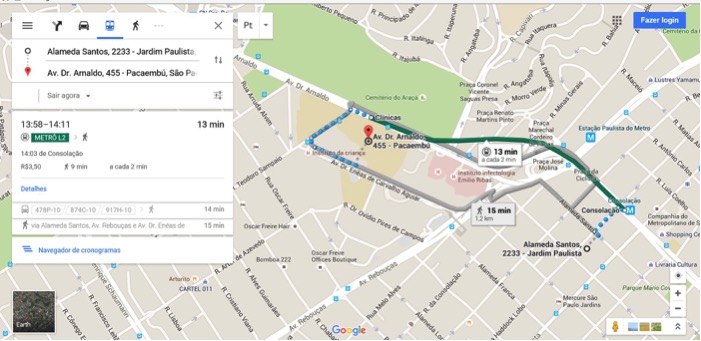
Download directions in pdf here.
Please find below the directions on how to get the subway. The ticket costs R$ 3,50 (one-way) and can be bought directly at the counters of the subway stations. The trip takes approx. 3 minutes.
From the hotel to the University
Take the subway at the station “Estação Consolação” => Linha 2 – Verde (Line 2 – Green) in direction to Vila Madalena and get off at the next station “Estação Clínicas”. Take the stairs at your left hand up to the street after passing the ticket gate. The main entrance of the University of São Paulo Medical School is in front of the station exit.
From the University to the hotel Renaissance Marriott
Take the subway at the station “Estação Clínicas” => Linha 2 – Verde (Line 2 Green) in direction to Vila Prudente and get off at the next station “Estação Consolação”.
From the Renaissance Marriott to the Group Dinner (Terraço Itália, Av. Ipiranga, 344 – República, São Paulo – SP, 01046-010, Brazil)
At 7:30pm a bus will be in front of the hotel.
Hotel Reservation:

Renaissance Sao Paulo Hotel
Alameda Santos, 2233 Sao Paulo, 01419-002 Brazil
Phone: 55 11 3069 2233
Fax: 55 11 3064 3344
For US participants:
Hotel reservation number and transportation details will be send my email.
For Brazilian participants:
The special rate for Brazilian participants, R$ 850.00 + taxes .
The reservations must be done directly through the Reservation department at + 55 11 3069 2807 or reservas.brasil@marriott.com .
Guests will be able to book their sleeping rooms informing a code “DLF” to identify the group rate. The sleeping rooms will be blocked until 09/30/2015 . After this date sleeping rooms that were not reserved will be released automatically, without charge of any fee, and rate negotiated will not available anymore . Requests made after this date only will be done upon availability and the rate of the day requested.
Directions from the Airport to the Renaissance Sao Paulo Hotel
- São Paulo/Guarulhos International Airport – GRU
Hotel direction: 21.7 miles NE
Estimated taxi fare: 60 USD (one way) - Sao Paulo/Congonhas Airport – CGH
Hotel direction: 6.8 miles E
Estimated taxi fare: 60 USD (one way)
Trabalhadores Highway through downtown, Avenida Tiradentes to Avenida Nove de Julho and then Avenida Paulista.Cumbica International Airport. Located at Guarulhos city.36 km from the Renaissance Sao Paulo Hotel.
Parking
On-site parking, fee: 10 USD hourly, 30 USD daily
Other transportation
Bus Station: Terminal Rodoviario Barra Funda 5 miles N
Subway Station: Consolaçao Station 0.1 miles E
*please call us 305-348-4105 (or ciaraaccounting@ampath.net ) in case you need additional information.
Additional Hotels in proximity:
The following hotels are near the subway station and also to the Renaissance Marriott São Paulo.
La Residence Paulista
Alameda Jaú, 1606 – Jardim Paulista
Phone: (11) 4301-5647
http://www.laresidencepaulista.com.br
Rate: approx. R$ 224,00/night
Melia Paulista
Avenida Paulista, 2181 – Consolação
Phone: (11) 2184-1600
ID de parada:http://www.melia.com/pt/hoteis/brasil/sao-paulo/melia-paulista/index.html
Rate: approx. R$ 350,00/night
Hotel Ibis Sao Paulo Paulista
Avenida Paulista, 2355 – Bela Vista
Phone: (11) 3523-3000
http://www.accorhotels.com/pt/hotel-3735-ibis-sao-paulo-paulista/index.shtml
Rate: approx. R$ 270,00/night
Visa Information
Apply for Brazilian tourist visa (this can take up to 4 weeks and require a valid passport that extends 6 months beyond stay in Brazil) at your respective jurisdiction’s Brazilian Consulates in the Unites States: http://washington.itamaraty.gov.br/en-us/brazilian_consulates_in_the_us.xml
For your Brazilian tourist visa you may need the following information:
Accommodation:
Renaissance Sao Paulo Hotel
Alameda Santos, 2233 Sao Paulo, 01419-002 Brazil
Phone: 55 11 3069 2233
Fax: 55 11 3064 3344
The contact person from Brazil will be:
Prof. Dr. Luis Fernandez Lopez
Professor da Disciplina de Informática Médica
Departamento de Medicina Legal
Faculdade de Medicina da Universidade de São Paulo
Av. Dr. Arnaldo, 455
Cerqueira César CEP: 01246903
São Paulo SP Brasil
Telefone: +55 11 3061-7000
E-mail: lopez@ansp.br
Local Area Information
- Parque do Ibirapuera – Ibirapuera Park
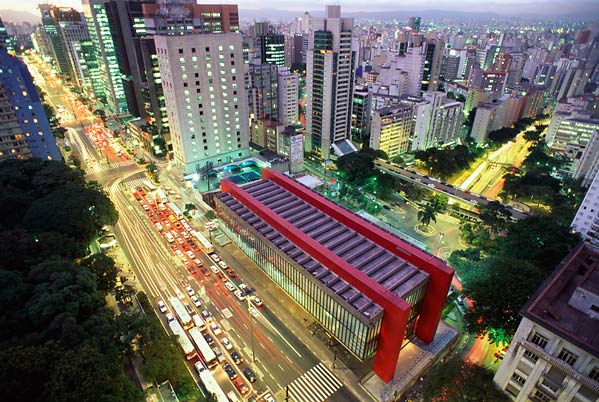
- Mercado Municipal – Municipal Market
- Theatro Municipal – Municipal Theatre of São Paulo
- Sao Bento Monastery
- Rua Oscar Freire – Oscar Freire Street
- Planetário do Ibirapuera – Ibirapuera Planetarium
- Sala Sao Paulo – Orquestra Sinfonica de Sao Paulo
- Pateo do Collegio
- Instituto Butantan – Butantan Institue
- Sao Paulo Aquarium
- 10 SP Attractions
Thank you to our Partners & Sponsors
___________________
Any opinions, findings, and conclusions or recommendations expressed in SwitchOn materials are those of the author(s) and do not necessarily reflect the views of the National Science Foundation.


